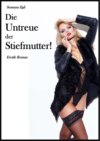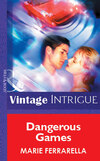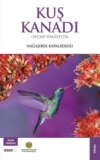Kitabı oku: «A Dictionary of Slang, Cant, and Vulgar Words», sayfa 12
PRIME PLANT, a good subject for plunder. —See PLANT.
PRIMED, said of a person in that state of incipient intoxication that if he takes more drink it will become evident.
PRO, a professional. —Theatrical.
PROG, meat, food, &c. Johnson calls it “a low word.”
PROP, a gold scarf pin.
PROP-NAILER, a man who steals, or rather snatches, pins from gentlemen’s scarfs.
PROPS, crutches.
PROPER, very, exceedingly, sometimes ironically; “you are a PROPER nice fellow,” meaning a great scamp.
PROS, a water-closet. Abbreviated form of πρὸς τινα τόπον. —Oxford University.
PROSS, breaking in, or instructing, a stage-infatuated youth. —Theatrical.
PSALM-SMITER, a “Ranter,” one who sings at a conventicle. —See BRISKET BEATER.
PUB, or PUBLIC, a public-house.
PUCKER, poor temper, difficulty, déshabillé.
PUCKER, or PUCKER UP, to get in a poor temper.
PUCKERING, talking privately.
PUDDING SNAMMER, one who robs a cook shop.
PUFF, to blow up, swell with praise, was declared by a writer in the Weekly Register, as far back as 1732, to be illegitimate.
“Puff has become a cant word, signifying the applause set forth by writers, &c., to increase the reputation and sale of a book, and is an excellent stratagem to excite the curiosity of gentle readers.”
Lord Bacon, however, used the word in a similar sense a century before.
PULL, an advantage, or hold upon another; “I’ve the PULL over you,” i. e., you are in my power – perhaps an oblique allusion to the judicial sense. —See the following.
PULL, to have one apprehended; “to be PULLED up,” to be taken before a magistrate.
PULL, to drink; “come, take a PULL at it,” i. e., drink up.
PULLEY, a confederate thief, – generally a woman.
PUMMEL, to thrash, – from POMMEL.
PUMP SHIP, to evacuate urine. —Sea.
PURE FINDERS, street collectors of dogs’ dung.
PURL, hunting term for a fall, synonymous with FOALED, or SPILT; “he’ll get PURLED at the rails.”
PURL, a mixture of hot ale and sugar, with wormwood infused in it, a favourite morning drink to produce an appetite; sometimes with gin and spice added: —
“Two penn’orth o’ PURL —
Good ‘early PURL,’
’Gin all the world
To put your hair into a curl,
When you feel yourself queer of a mornin’.”
PUSH, a crowd. —Old cant.
PUSSEY CATS, corruption of Puseyites, a name constantly, but improperly, given to the “Tractarian” party in the Church, from the Oxford Regius Professor of Hebrew, who by no means approved of the Romanising tendencies of some of its leaders.
PUT, a game at cards.
PUT THE POT ON, to bet too much upon one horse. —Sporting.
PUT UP, to suggest, to incite, “he PUT me UP to it;” to have done with; PUT IT UP, is a vulgar answer often heard in the streets. Put Up, to stop at an hotel or tavern for entertainment.
PUT UPON, cheated, deluded, oppressed.
PYGOSTOLE, the least irreverent of names for the peculiar “M.B.” coats worn by Tractarian curates. —
“It is true that the wicked make sport
Of our PYGOSTOLES, as we go by;
And one gownsman, in Trinity Court,
Went so far as to call me a ‘Guy,’”
QUARTEREEN, a farthing. —Gibraltar term. Ital., QUATTRINO.
QUEAN (not QUEEN), a strumpet.
QUEER, an old cant word, once in continual use as a prefix, signifying base, roguish, or worthless, – the opposite of RUM, which signified good and genuine. Queer, in all probability, is immediately derived from the cant language. It has been mooted that it came into use from a quære (?) being set before a man’s name; but it is more than probable that it was brought into this country by the Gipseys from Germany, where QUER signifies “cross,” or “crooked.” At all events, it is believed to have been first used in England as a cant word.
QUEEN BESS, the Queen of Clubs, – perhaps because that queen, history says, was of a swarthy complexion. —North Hants.—See Gentleman’s Magazine for 1791, p. 141.
QUEER, “to QUEER a flat,” to puzzle or confound a “gull” or silly fellow.
“Who in a row like Tom could lead the van,
Booze in the ken, or at the spellken hustle?
Who QUEER a flat,” &c.
Don Juan, canto xi., 19.
QUEER BAIL, worthless persons who for a consideration would stand bail for any one in court. Insolvent Jews generally performed this office, which gave rise to the term JEW-BAIL. —See MOUNTERS: both nearly obsolete.
QUEER BIT-MAKERS, coiners.
QUEER SCREENS, forged bank notes.
QUEER SOFT, bad money.
QUEER STREET, “in QUEER STREET,” in difficulty or in want.
QUEER CUFFEN, a justice of the peace, or magistrate – a very ancient term, mentioned in the earliest slang dictionary.
QUERIER, a chimney-sweep who calls from house to house, – formerly termed KNULLER, which see.
QUI-HI, an English resident at Calcutta. —Anglo Indian.
QUICK STICKS, in a hurry, rapidly; “to cut QUICK STICKS,” to be in a great hurry.
QUID, or THICK UN, a sovereign; “half a QUID,” half a sovereign; QUIDS, money generally; “QUID for a QUOD,” one good turn for another. The word is used by Old French writers: —
“Des testamens qu’on dit le maistre
De mon fait n’aura QUID ne QUOD.”
Grand Testament de Villon.
QUID, a small piece of tobacco – one mouthful. Quid est hoc? asked one, tapping the swelled cheek of another; hoc est quid, promptly replied the other, exhibiting at the same time “a chaw” of the weed. Probably a corruption of CUD.
QUIET, “on the QUIET,” clandestinely, so as to avoid observation, “under the rose.”
QUILL-DRIVER, a scrivener, a clerk – satirical phrase similar to STEEL BAR-DRIVER, a tailor.
QUILT, to thrash, or beat.
QUISBY, bankrupt, poverty stricken. —Ho. Words, No. 183.
QUIZ, a prying person, an odd fellow. Oxford slang; lately admitted into dictionaries. Not noticed by Johnson.
QUIZ, to pry, or joke.
QUIZZICAL, jocose, humorous.
QUOCKERWODGER, a wooden toy figure, which, when pulled by a string, jerks its limbs about. The term is used in a slang sense to signify a pseudo-politician, one whose strings of action are pulled by somebody else. —West.
QUOD, a prison, or lock up; QUODDED, put in prison. A slang expression used by Mr. Hughes, in Tom Brown’s Schooldays (Macmillan’s Magazine, January, 1860), throws some light upon the origin of this now very common street term: – “Flogged or whipped in QUAD,” says the delineator of student life, in allusion to chastisement inflicted within the Quadrangle of a college. Quadrangle is the term given to the prison inclosure within which culprits are allowed to walk, and where whippings were formerly inflicted. Quadrangle also represents a building of four sides; and to be “within FOUR WALLS,” or prison, is the frequent slang lamentation of unlucky vagabonds.
RABBIT, when a person gets the worst of a bargain he is said “to have bought the RABBIT.”
RACKET, a dodge, manœuvre, exhibition; a disturbance.
RACKETY, wild or noisy.
RACKS, the bones of a dead horse. Term used by horse slaughterers.
RACLAN, a married woman. —Gipsey.
RAFE, or RALPH, a pawnbroker’s duplicate. —Norwich.
RAG, to divide or share; “let’s RAG IT,” or GO RAGS, i. e., share it equally between us. —Norwich.
RAGAMUFFIN, a tattered vagabond, a tatterdemalion.
RAG SPLAWGER, a rich man.
RAGS, bank notes.
RAG-SHOP, a bank.
RAIN NAPPER, umbrella.
RAISE THE WIND, to obtain credit, or money – generally by pawning or selling off property.
RAMP, to thieve or rob with violence.
RAMPSMAN, a highway robber who uses violence when necessary.
RAMSHACKLE, to shatter as with a battering ram; RAMSHACKLED, knocked about, as standing corn is after a high wind. Corrupted from ram-shatter, or possibly from ransack.
RANDOM, three horses driven in line, a very appropriate term. —See TANDEM.
RANDY, rampant, violent, warm, amorous. North, RANDY-BEGGAR, a gipsey tinker.
RAN-TAN, “on the RAN-TAN,” drunk. —Ho. Words, No. 183.
RANTIPOLE, a wild noisy fellow.
RAP, a halfpenny; frequently used generically for money, thus: “I hav’nt a RAP,” i. e., I have no money whatever; “I don’t care a RAP,” &c. Originally a species of counterfeit coin used for small change in Ireland, against the use of which a proclamation was issued, 5th May, 1737. Small copper or base metal coins are still called RAPPEN in the Swiss cantons. Irish robbers are called RAPPAREES.
RAP, to utter; “he RAPPED out a volley of oaths.”
RAPPING, enormous; “a RAPPING big lie.”
RAPSCALLION, a low tattered wretch.
RAT, a sneak, an informer, a turn-coat, one who changes his party for interest. The late Sir Robert Peel was called the RAT, or the TAMWORTH RATCATCHER, for altering his views on the Roman Catholic question. From rats deserting vessels about to sink.
RAT, term amongst printers to denote one who works under price. Old cant for a clergyman.
RATHER! a ridiculous street exclamation synonymous with yes; “do you like fried chickens?” “RATHER!” “are you going out of town?” “RATHER!”
RATHER OF THE RATHEREST, a phrase applied to anything slightly in excess or defect.
RATTLECAP, an unsteady, volatile person.
RATTLER, a cab, coach, or cart. —Old cant.
RATTLERS, a railway; “on the RATTLERS to the stretchers,” i. e., going to the races by railway.
RAW, uninitiated; a novice. —Old. Frequently a JOHNNY RAW.
RAW, a tender point, a foible; “to touch a man up on the RAW” is to irritate one by alluding to, or joking him on, anything on which he is peculiarly susceptible or “thin-skinned.”
READER, a pocket-book; “give it him for his READER,” i. e., rob him of his pocket-book. —Old cant.
READY, or READY GILT (properly GELT), money. Used by Arbuthnot, “Lord Strut was not very flush in READY.”
REAM, good or genuine. From the Old cant, RUM.
REAM-BLOAK, a good man.
RECENT INCISION, the busy thoroughfare on the Surrey side of the Thames, known by sober people as the NEW CUT.
REDGE, gold.
RED HERRING, a soldier.
RED LANE, the throat.
RED LINER, an officer of the Mendicity Society.
RED RAG, the tongue.
REGULARS, a thief’s share of the plunder. “They were quarrelling about the REGULARS.” —Times, 8th January, 1856.
RELIEVING OFFICER, a significant term for a father. —Univ.
RENCH, vulgar pronunciation of RINSE. “Wrench your mouth out,” said a fashionable dentist one day. —North.
RE-RAW, “on the RE-RAW,” tipsy or drunk. —Household Words, No. 183.
RHINO, ready money.
RHINOCERAL, rich, wealthy, abounding in RHINO.
RIB, a wife. —North.
RIBBONS, the reins. —Middlesex.
RIBROAST, to beat till the ribs are sore. —Old; but still in use: —
“And he departs, not meanly boasting
Of his magnificent RIBROASTING.” —Hudibras.
RICH, spicy; also used in the sense of “too much of a good thing;” “a RICH idea,” one too absurd or unreasonable to be adopted.
RIDE, “to RIDE THE HIGH HORSE,” or RIDE ROUGH-SHOD over one, to be overbearing or oppressive; to RIDE THE BLACK DONKEY, to be in an ill humour.
RIDER, in a University examination, a problem or question appended to another, as directly arising from or dependent on it; – beginning to be generally used for any corollary or position which naturally arises from any previous statement or evidence.
RIG, a trick, “spree,” or performance; “run a RIG,” to play a trick —Gipsey; “RIG the market,” in reality to play tricks with it, – a mercantile slang phrase often used in the newspapers.
RIGGED, “well RIGGED,” well dressed. —Old slang, in use 1736. —See Bailey’s Dictionary.—Sea.
RIGHT AS NINEPENCE, quite right, exactly right.
RIGHTS, “to have one to RIGHTS,” to be even with him, to serve him out.
RIGMAROLE, a prolix story.
RILE, to offend, to render very cross, irritated, or vexed. Properly, to render liquor turbid. —Norfolk.
RING, a generic term given to horse-racing and pugilism, – the latter is sometimes termed the PRIZE-RING. From the practice of forming the crowd into a ring around the combatants, or outside the race-course.
RING, “to go through the RING,” to take advantage of the Insolvency Act, or be whitewashed.
RING DROPPING, see FAWNEY.
RINGING CASTORS, changing hats.
RINGING THE CHANGES, changing bad money for good.
RIP, a rake; “an old RIP,” an old libertine, or debauchee. Corruption of Reprobate. A person reading the letters R. I. P. (Requiescat in Pace) on the top of a tombstone as one word, said, soliloquising, “Rip! well, he was an old RIP, and no mistake.” —Cuthbert Bede.
RIPPER, a first-rate man or article. —Provincial.
RIPPING, excellent, very good.
RISE, “to take a RISE out of a person,” to mortify, outwit, or cheat him, by superior cunning.
RISE (or RAISE) A BARNEY, to collect a mob.
ROARER, a broken-winded horse.
ROARING TRADE, a very successful business.
ROAST, to expose a person to a running fire of jokes at his expense from a whole company, in his presence. Quizzing is done by a single person only.
ROCK A LOW, an overcoat. Corruption of the French ROQUELAURE.
ROCKED, “he’s only HALF-ROCKED,” i. e., half witted.
ROLL OF SNOW, a piece of Irish linen.
ROMANY, a Gipsey, or the Gipsey language; the speech of the Roma or Zincali. —Spanish Gipsey.
ROOK, a clergyman, not only from his black attire, but also, perhaps, from the old nursery favourite, the History of Cock Robin.
“I, says the ROOK,
With my little book,
I’ll be the parson.”
ROOK, a cheat, or tricky gambler; the opposite of PIGEON. —Old.
ROOKERY, a low neighbourhood inhabited by dirty Irish and thieves – as ST. GILES’ ROOKERY. —Old. In Military slang that part of the barracks occupied by subalterns, often by no means a pattern of good order.
ROOKY, rascally, rakish, scampish.
ROOST, synonymous with PERCH, which see.
ROOTER, anything good or of a prime quality; “that is a ROOTER,” i. e., a first-rate one of the sort.
ROSE, an orange.
ROSE, “under the ROSE” (frequently used in its Latin form, Sub rosâ), i. e., under the obligation of silence and secresy, of which the rose was anciently an emblem, perhaps, as Sir Thomas Browne remarks, from the closeness with which its petals are enfolded in the bud. The Rose of Venus was given, says the classic legend, to Harpocrates, the God of Silence, by Cupid, as a bribe not to “peach” about the Goddess’ amours. It was commonly sculptured on the ceilings of banquetting rooms, as a sign that what was said in free conversation there was not afterwards to be divulged and about 1526 was placed over the Roman confessionals as an emblem of secrecy. The White Rose was also an emblem of the Pretender, whose health, as king, his secret adherents used to drink “under the ROSE.”
ROT, nonsense, anything bad, disagreeable, or useless.
ROT GUT, bad small beer, – in America, cheap whisky.
ROUGH, bad; “ROUGH fish,” bad or stinking fish.
ROUGH IT, to put up with chance entertainment, to take pot luck, and what accommodation “turns up,” without sighing for better. “Roughing it in the Bush” is the title of an interesting work on Backwoods life.
ROUGHS, coarse, or vulgar men.
ROULEAU, a packet of sovereigns. —Gaming.
ROUND, to tell tales, to “SPLIT,” which see; “to ROUND on a man,” to swear to him as being the person, &c. Synonymous with “BUFF,” which see. Shakespere has ROUNDING, whispering.
ROUND, “ROUND dealing,” honest trading; “ROUND sum,” a large sum. Synonymous also in a slang sense with SQUARE, which see.
ROUNDS, shirt collars – apparently a mere shortening of “All Rounds,” or “All Rounders,” names of fashionable collars.
ROUNDS (in the language of the street), the BEATS or usual walks of the costermonger to sell his stock. A term used by street folk generally.
“Watchmen, sometimes they made their sallies,
And walk’d their ROUNDS through streets and allies.”
Ned Ward’s Vulgus Britannicus, 1710.
ROUND ROBIN, a petition, or paper of remonstrance, with the signatures written in a circle, – to prevent the first signer, or ringleader, from being discovered.
ROUNDABOUTS, large swings of four compartments, each the size, and very much the shape, of the body of a cart, capable of seating six or eight boys and girls, erected in a high frame, and turned round by men at a windlass. Fairs and merry-makings generally abound with them. The frames take to pieces, and are carried in vans by miserable horses, from fair to fair, &c.
ROW, a noisy disturbance, tumult, or trouble. Originally Cambridge, now universal. Seventy years ago it was written ROUE, which would indicate a French origin from roué, a profligate, or disturber of the peace. —Vide George Parker’s Life’s Painter, 1789, p. 122.
ROWDY, money. In America, a ruffian, a brawler, “rough.”
ROWDY-DOW, low, vulgar; “not the CHEESE,” or thing.
RUB, a quarrel, or impediment: “there’s the RUB,” i. e., that is the difficulty. —Shakespere and L’Estrange.
RUBBER, a term at whist, &c., two games out of three. —Old, 1677.
RUCK, the undistinguished crowd; “to come in with the RUCK,” to arrive at the winning post among the non-winning horses. —Racing term.
RUGGY, fusty, frowsy.
RUM, like its opposite, QUEER, was formerly a much used prefix, signifying, fine, good, gallant, or valuable, perhaps in some way connected with ROME. Now-a-days it means indifferent, bad, or questionable, and we often hear even persons in polite society use such a phrase as “what a RUM fellow he is, to be sure,” in speaking of a man of singular habits or appearance. The term, from its frequent use, long since claimed a place in our dictionaries; but, with the exception of Johnson, who says RUM, a cant word for a clergyman (?), no lexicographer has deigned to notice it.
“Thus RUMLY floor’d, the kind Acestes ran,
And pitying, rais’d from earth the game old man.”
Virgil’s Æneid, book v., Translation by Thomas Moore.
RUMBUMPTIOUS, haughty, pugilistic.
RUMBUSTIOUS, or RUMBUSTICAL, pompous, haughty, boisterous, careless of the comfort of others.
RUMGUMPTION, or GUMPTION, knowledge, capacity, capability, – hence, RUMGUMPTIOUS, knowing, wide-awake, forward, positive, pert, blunt.
RUM MIZZLERS, persons who are clever at making their escape, or getting out of a difficulty.
RUMPUS, a noise, disturbance, a “row.”
RUMY, a good woman, or girl. —Gipsey slang. In the regular Gipsey language, ROMI, a woman, a wife, is the feminine of RO, a man; and in the Robber’s Language of Spain (partly Gipsey), RUMI signifies a harlot.
RUN (good or bad), the success of a performance —Theatrical.
RUN, to comprehend, &c.; “I don’t RUN, to it,” i. e., I can’t do it, or I don’t understand, or I have not money enough. —North.
RUN, “to get the RUN upon any person,” to have the upper hand, or be able to laugh at them. Run down, to abuse or backbite anyone.
RUNNING PATTERER, a street seller who runs or moves briskly along, calling aloud his wares.
RUNNING STATIONERS, hawkers of books, ballads, dying speeches, and newspapers. They formerly used to run with newspapers, blowing a horn, when they were also termed FLYING STATIONERS.
RUSH, “doing it on the RUSH,” running away, or making off.
RUST, “to nab the RUST,” to take offence. Rusty, cross, ill-tempered, morose, one who cannot go through life like a person of easy and polished manners.
RUSTY GUTS, a blunt, rough old fellow. Corruption of RUSTICUS.
SACK, “to get the SACK,” to be discharged by an employer.
SADDLE, an additional charge made by the manager to a performer upon his benefit night. —Theatrical.
SAD DOG, a merry fellow, a joker, a gay or “fast” man.
SAINT MONDAY, a holiday most religiously observed by journeymen shoemakers, and other mechanics. An Irishman observed that this saint’s anniversary happened every week. —North, where it is termed COBBLERS’ MONDAY.
SAL, a salary. —Theatrical.
SALAMANDERS, street acrobats, and jugglers who eat fire.
SALOOP, SALEP, or SALOP, a greasy looking beverage, formerly sold on stalls at early morning, prepared from a powder made of the root of the Orchis mascula, or Red-handed Orchis. Within a few years coffee stands have superseded SALOOP stalls, but Charles Lamb, in one of his papers, has left some account of this drinkable, which he says was of all preparations the most grateful to the stomachs of young chimney sweeps.
SALT, “its rather too SALT,” said of an extravagant hotel bill.
SALT BOX, the condemned cell in Newgate.
SALTEE, a penny. Pence, &c., are thus reckoned: —

⁂ This curious list of numerals in use among the London street folk is, strange as it may seem, derived from the Lingua Franca, or bastard Italian, of the Mediterranean seaports, of which other examples may be found in the pages of this Dictionary. Saltee, the cant term used by the costermongers and others for a penny, is no other than the Italian, SOLDO (plural, SOLDI), and the numerals – as may be seen by the Italian equivalents – are a tolerably close imitation of the originals. After the number SIX, a curious variation occurs, which is peculiar to the London cant, seven being reckoned as SAY ONEY, six-one, SAY DOOE, six-two = 8, and so on. Dacha, I may remark, is perhaps from the Greek, DEKA (δέκα), ten, which, in the Constantinopolitan Lingua Franca, is likely enough to have been substituted for the Italian. Madza, is clearly the Italian MEZZA. The origin of BEONG I have not been so fortunate as to discover, unless it be the French, BIEN, the application of which to a shilling is not so evident; but amongst costermongers and other street folk, it is quite immaterial what foreign tongue contributes to their secret language. Providing the terms are unknown to the police and the public generally, they care not a rushlight whether the polite French, the gay Spaniards, or the cloudy Germans helped to swell their vocabulary. The numbers of low foreigners, however, dragging out a miserable existence in our crowded neighbourhoods, organ grinders and image sellers, foreign seamen from the vessels in the river, and our own connection with Malta and the Ionian Isles, may explain, to a certain extent, the phenomenon of these Southern phrases in the mouths of costers and tramps.
SALT JUNK, navy salt beef. —See OLD HORSE.
SALVE, praise, flattery, chaff.
SAM, to “stand SAM,” to pay for refreshment, or drink, to stand paymaster for anything. An Americanism, originating in the letters U.S. on the knapsacks of the United States soldiers, which letters were jocularly said to be the initials of Uncle Sam (the Government), who pays for all. In use in this country as early as 1827.
SANGUINARY JAMES, a sheep’s head. —See BLOODY JEMMY.
SANK WORK, making soldiers’ clothes. Mayhew says from the Norman, SANC, blood, – in allusion either to the soldier’s calling, or the colour of his coat.
SAP, or SAPSCULL, a poor green simpleton, with no heart for work.
SAUCEBOX, a mouth, also a pert young person.
SAVELOY, a sausage of chopped beef smoked, a minor kind of POLONY.
SAVEY, to know; “do you SAVEY that?” —French, SAVEZ VOUS CELA? In the nigger and Anglo Chinese patois, this is SABBY, “me no SABBY.” The Whampoa slang of this description is very extraordinary; from it we have got our word CASH!
SAW YOUR TIMBER, “be off!” equivalent to cut your stick. —See CUT.
SAWBONES, a surgeon.
SAWNEY, or SANDY, a Scotchman. Corruption of Alexander.
SAWNEY, a simpleton.
SAWNEY, bacon. Sawney hunter, one who steals bacon.
SCAB, a worthless person. —Old. Shakespere uses SCALD in a similar sense.
SCALDRUM DODGE, burning the body with a mixture of acids and gunpowder, so as to suit the hues and complexions of the accident to be deplored.
SCALY, shabby, or mean. Shakespere uses SCALD, an old word of reproach.
SCAMANDER, to wander about without a settled purpose; – possibly in allusion to the winding course of the Homeric river of that name.
SCAMMERED, drunk.
SCAMP, a graceless fellow, a rascal; formerly the cant term for plundering and thieving. A ROYAL-SCAMP was a highwayman, whilst a FOOT-SCAMP was an ordinary thief with nothing but his legs to trust to in case of an attempt at capture. Some have derived SCAMP from qui ex campo exit, viz., one who leaves the field, a deserter.
SCARPER, to run away. —Spanish, ESCAPAR, to escape, make off; Italian, SCAPPARE. “Scarper with the feele of the donna of the cassey,” to run away with the daughter of the land-lady of the house; almost pure Italian, “scappare colla figlia della donna della casa.”
SCHISM-SHOP, a dissenters’ meeting-house. —University.
SCHOFEL, bad money. —See SHOW FULL.
SCHOOL, or MOB, two or more “patterers” working together in the streets.
SCHOOLING, a low gambling party.
SCHWASSLE BOX, the street performance of Punch and Judy. —Household Words, No. 183.
SCONCE, the head, judgment, sense. —Dutch.
SCORE, “to run up a SCORE at a public house,” to obtain credit there until pay day, or a fixed time, when the debt must be WIPED OFF.
SCOT, a quantity of anything, a lot, a share. —Anglo Saxon, SCEAT, pronounced SHOT.
SCOT, temper, or passion, – from the irascible temperament of that nation; “oh! what a SCOT he was in,” i. e., what temper he showed, – especially if you allude to the following.
SCOTCH FIDDLE, the itch; “to play the SCOTCH FIDDLE,” to work the index finger of the right hand like a fiddlestick between the index and middle finger of the left. This provokes a Scotchmen in the highest degree, it implying that he is afflicted with the itch.
SCOTCH GRAYS, lice. Our northern neighbours are calumniously reported, from their living on oatmeal, to be peculiarly liable to cutaneous eruptions and parasites.
SCOTCHES, the legs; also synonymous with NOTCHES.
SCOUT, a college valet, or waiter. —Oxford.—See GYP.
SCRAG, the neck. —Old cant. Scotch, CRAIG. Still used by butchers. Hence, SCRAG, to hang by the neck, and SCRAGGING, an execution, – also old cant.
SCRAN, pieces of meat, broken victuals. Formerly the reckoning at a public-house. Scranning, begging for broken victuals. Also, an Irish malediction of a mild sort, “Bad SCRAN to yer!”
SCRAPE, a difficulty; SCRAPE, low wit for a shave.
SCRAPE, cheap butter; “bread and SCRAPE,” the bread and butter issued to school-boys – so called from the butter being laid on, and then scraped off again, for economy’s sake.
SCRAPING CASTLE, a water-closet.
SCRATCH, a fight, contest, point in dispute; “coming up to the SCRATCH,” going or preparing to fight – in reality, approaching the line usually chalked on the ground to divide the ring. —Pugilistic.
SCRATCH, “no great SCRATCH,” of little worth.
SCRATCH, to strike a horse’s name out of the list of runners in a particular race. “Tomboy was SCRATCHED for the Derby, at 10, a.m., on Wednesday,” from which period all bets made in reference to him (with one exception) are void. —See P.P. —Turf.
SCRATCH-RACE (on the Turf), a race where any horse, aged, winner, or loser, can run with any weights; in fact, a race without restrictions. At Cambridge a boat-race, where the crews are drawn by lot.
SCREAMING, first-rate, splendid. Believed to have been first used in the Adelphi play-bills; “a SCREAMING farce,” one calculated to make the audience scream with laughter. Now a general expression.
SCREEVE, a letter, a begging petition.
SCREEVE, to write, or devise; “to SCREEVE a fakement,” to concoct, or write, a begging letter, or other impostor’s document. From the Dutch, SCHRYVEN; German, SCHREIBEN; French, ECRIVANT (old form), to write.
SCREEVER, a man who draws with coloured chalks on the pavement figures of our Saviour crowned with thorns, specimens of elaborate writing, thunderstorms, ships on fire, &c. The men who attend these pavement chalkings, and receive halfpence and sixpences from the admirers of street art, are not always the draughtsmen. The artist, or SCREEVER, drew, perhaps, in half-a-dozen places that very morning, and rented the spots out to as many cadaverous looking men.
SCREW, an unsound, or broken-down horse, that requires both whip and spur to get him along.
SCREW, a key, – skeleton, or otherwise.
SCREW, a turnkey.
SCREW, a mean or stingy person.
SCREW, salary or wages.
SCREW, “to put on the SCREW,” to limit one’s credit, to be more exact and precise.
SCREW LOOSE, when friends become cold and distant towards each other, it is said there is a SCREW LOOSE betwixt them; said also when anything goes wrong with a person’s credit or reputation.
SCREW, a small packet of tobacco.
SCREWED, intoxicated or drunk.
SCRIMMAGE, or SCRUMMAGE, a disturbance or row. —Ancient. Corruption of skirmish?
SCROBY, “to get SCROBY,” to be whipped in prison before the justices.
SCROUGE, to crowd or squeeze. —Wiltshire.
SCRUFF, the back part of the neck seized by the adversary in an encounter.
SCRUMPTIOUS, nice, particular, beautiful.
SCUFTER, a policeman. —North country.
SCULL, or SKULL, the head or master of a college. —University, but nearly obsolete; the gallery, however, in St. Mary’s (the University church), where the “Heads of Houses” sit in solemn state, is still nicknamed the GOLGOTHA by the undergraduates.
SCURF, a mean fellow.
SEALS, a religious slang term for converts. —See OWNED.
SEEDY, worn out, poverty stricken, used up, shabby. Metaphorical expression from the appearance of flowers when off bloom and running to seed; hence said of one who wears clothes until they crack and become shabby; “how SEEDY he looks,” said of any man whose clothes are worn threadbare, with greasy facings, and hat brightened up by perspiration and continual polishing and wetting. When a man’s coat begins to look worn out and shabby he is said to look SEEDY and ready for cutting. This term has been “on the streets” for nearly two centuries, and latterly has found its way into most dictionaries. Formerly slang, it is now a recognised word, and one of the most expressive in the English language. The French are always amused with it, they having no similar term.
SELL, to deceive, swindle, or play a practical joke upon a person. A sham is a SELL in street parlance. “Sold again, and got the money,” a costermonger cries after having successfully deceived somebody. Shakespere uses SELLING in a similar sense, viz., blinding or deceiving.
SELL, a deception, disappointment; also a lying joke.
SENSATION, a quartern of gin.
SERENE, all right; “it’s all SERENE,” a street phrase of very modern adoption, the burden of a song.
SERVE OUT, to punish, or be revenged on any one.
SETTER, sevenpence. Italian, SETTE. —See SALTEE.
SETTER, a person employed by the vendor at an auction to run the biddings up; to bid against bonâ fide bidders.
SETTLE, to kill, ruin, or effectually quiet a person.
SETTLED, transported.
SET TO, a sparring match, a fight; “a dead set,” a determined stand, in argument or in movement.










